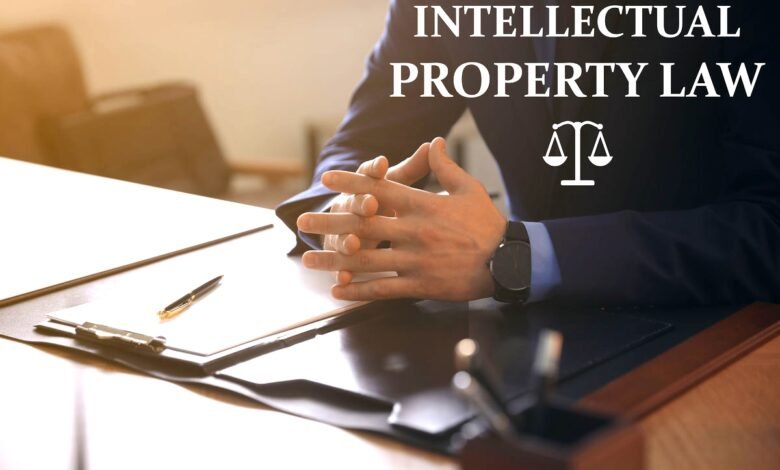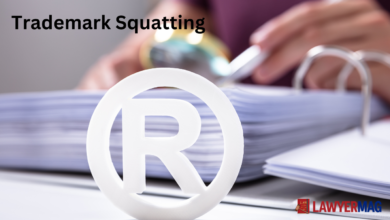Tips for Locating Intellectual Property Lawyer for Business Needs

In today’s competitive business landscape, safeguarding your intellectual property (IP) is paramount to maintaining a competitive edge. Protecting your intellectual assets is crucial for your business’s success, whether it’s patents, trademarks, copyrights, or trade secrets. This is where intellectual property lawyers come into play – legal experts helping businesses navigate the complex world of intellectual property law. However, finding the right intellectual property lawyer for your business needs can be daunting. This article outlines essential tips to help you locate the perfect intellectual property lawyer who can protect your valuable assets and contribute to your business growth.
Introduction: The Significance of Intellectual Property Lawyers
Intellectual property has emerged as a crucial asset in the ever-evolving business landscape, where innovation is a driving force. Intellectual property lawyers are pivotal in helping businesses secure their patents, trademarks, copyrights, and trade secrets. Their expertise ensures that your innovative ideas remain protected, fostering growth and preventing infringement.
Understanding Your Intellectual Property Needs
Before embarking on the journey of finding the right intellectual property lawyer, it’s essential to understand your specific intellectual property needs. Determine the type of intellectual property you possess and the protection you require. This will help you narrow your search and find a lawyer with the right expertise.
Intellectual property comes in various forms, each requiring a unique approach to protection. Patents are crucial for safeguarding inventions and technological advancements, while trademarks protect your brand’s identity and reputation. On the other hand, copyrights secure your creative works, such as literary, artistic, and musical creations. Additionally, trade secrets encompass valuable business information that provides a competitive advantage. By identifying the types of intellectual property relevant to your business, you’ll be better equipped to communicate your needs to potential lawyers.
Researching Potential Intellectual Property Lawyers
The digital age has made it easier than ever to research and shortlist potential intellectual property lawyers. Utilize online legal directories, law firm websites, and professional networks to create a list of candidates.
Online legal directories aggregate a wealth of information about lawyers, including their practice areas, qualifications, and contact details. These directories often provide reviews and ratings from past clients, offering insights into lawyers’ reputations and professionalism. Browse through these directories and compile a list of lawyers specializing in intellectual property law.
Furthermore, law firm websites are valuable resources for getting to know lawyers’ profiles, experiences, and case histories. Take the time to explore different law firms’ websites, paying attention to lawyers who have demonstrated expertise in handling cases similar to yours. Look for information about their education, certifications, and memberships in legal associations related to intellectual property.
Online and offline professional networks can also play a crucial role in your research. Contact colleagues, industry peers, and business associations for recommendations and referrals. Word-of-mouth recommendations can provide firsthand insights into a lawyer’s capabilities and work ethic.
By combining information from online directories, law firm websites, and recommendations, you’ll create a comprehensive list of potential lawyers to consider.
Evaluating Qualifications and Experience
When it comes to intellectual property law, experience matters. Look for lawyers specializing in intellectual property with a proven track record of successful cases. Review their qualifications, certifications, and any memberships in relevant legal associations.
Qualifications are a testament to a lawyer’s educational background and training. Check whether the lawyer holds a Juris Doctor (J.D.) degree from an accredited law school. Additionally, inquire about any advanced degrees or specialized courses related to intellectual property law. Such qualifications indicate a commitment to staying updated with the evolving legal landscape.
Experience, however, goes beyond education. Look for lawyers with a substantial history of handling intellectual property cases. Experience equips lawyers with insights into the intricacies of intellectual property law and strategies for effectively navigating the complexities of intellectual property disputes—request information about cases they’ve handled, especially those similar to your business’s needs.
Memberships in legal associations dedicated to intellectual property demonstrate a lawyer’s dedication to their practice area. Organizations such as the American Intellectual Property Law Association (AIPLA) and the International Trademark Association (INTA) are reputable associations that lawyers often join to enhance their expertise and network with peers.
Assessing Communication and Compatibility
Effective communication is vital when dealing with legal matters. During your initial interactions, assess how well the lawyer communicates complex legal concepts. Intellectual property law can be intricate, with technical terms and nuanced legal principles. A competent lawyer should be able to break down these concepts into understandable terms, ensuring that you comprehend the potential challenges and strategies.
Compatibility also plays a significant role in establishing a successful lawyer-client relationship. While legal expertise is essential, a harmonious working dynamic enhances collaboration and the overall experience. Pay attention to how the lawyer interacts with you during initial consultations. Do they listen actively to your concerns? Are they responsive to your questions? Are they approachable and patient when explaining legal concepts? These aspects can give you valuable insights into their communication style and whether it aligns with your preferences.
Exploring Legal Fees and Budget Considerations
Legal fees can vary significantly based on the lawyer’s experience, reputation, and the complexity of your case. Before committing to a lawyer, discuss fee structures and payment plans to ensure their services align with your budget.
Lawyers typically offer several fee structures:
- Hourly Rate: Lawyers charge a specific amount per hour of work. This structure is common for complex cases that require extensive research and preparation.
- Flat Fee: Some lawyers offer a flat fee for specific legal services, such as drafting contracts or filing trademark applications. This approach provides clarity on costs upfront.
- Contingency Fee: In some cases, lawyers work on a contingency basis, only receiving payment if they secure a favorable outcome for your case. This structure is more common in litigation.
- Retainer Fee: A retainer fee involves paying an upfront amount that the lawyer uses to cover ongoing legal expenses. The lawyer deducts fees from the retainer as they work on your case.
During your discussions, be transparent about your budget constraints. A reputable lawyer will provide transparent information about their fees and their calculation. In addition to the base fees, inquire about potential additional costs, such as court filing fees or expenses related to intellectual property searches.
While budget considerations are important, the cheapest option may not always be the best. Intellectual property cases can have long-term implications for your business. It’s essential to balance cost considerations with the level of expertise and service required to protect your intellectual property effectively.
Checking References and Reviews
The insights of past clients can provide valuable information about a lawyer’s professionalism, responsiveness, and ability to deliver results. Don’t hesitate to ask potential lawyers for references from clients they’ve worked with. Contact these references to inquire about their experiences working with the lawyer.
Additionally, explore online reviews and testimonials. Many law firm websites and online legal directories feature client reviews that shed light on lawyers’ strengths and areas for improvement. While a few negative reviews are not uncommon, pay attention to the overall sentiment and whether clients consistently highlight positive qualities such as communication, knowledge, and dedication.
When speaking with references and reviewing online feedback, consider asking questions such as:
- How effectively did the lawyer communicate complex legal concepts?
- Was the lawyer responsive to questions and concerns?
- Did the lawyer demonstrate a thorough understanding of intellectual property law?
- Were you satisfied with the outcomes of your case?
- Would you recommend this lawyer to others seeking intellectual property legal assistance?
Gathering insights from references and reviews can help you make a well-informed decision and better understand what it’s like to work with a particular lawyer.
Initial Consultation: Asking the Right Questions
The initial consultation is pivotal in your search for an intellectual property lawyer. It allows you to gauge a lawyer’s expertise, approach to your case, and compatibility. To maximize this consultation, prepare a list of questions addressing your needs and concerns.
Consider asking the following questions during the initial consultation:
- How long have you been practicing intellectual property law?
- What types of intellectual property cases have you handled in the past?
- Have you worked with businesses similar to mine?
- Can you provide examples of successful topics you’ve taken?
- How do you approach intellectual property cases?
- What strategies would you recommend for my specific situation?
- What challenges do you foresee in my case, and how would you address them?
- What is your communication style, and how often can I expect updates about my case?
- What are the potential timelines for resolving my issue?
- What is your fee structure, and how are fees calculated?
- Are there any additional costs I should be aware of?
- How do you handle conflicts of interest, if any arise?
- Can you provide references from past clients who had cases similar to mine?
- Do you offer alternative dispute resolution methods, such as mediation or arbitration?
- How do you stay updated with changes in intellectual property law?
The answers to these questions can help you assess the lawyer’s expertise, communication style, and alignment with your needs. Please consider how well the lawyer listens to your concerns and whether they provide clear and comprehensive responses.
Remember that the initial consultation is also an opportunity to evaluate whether you feel comfortable working with the lawyer. A solid lawyer-client relationship is built on trust, open communication, and mutual respect.
Read More: How to Pick a Premier Property Lawyer in Birmingham, UK 2023
Considering Specializations and Industry Expertise
Intellectual property law encompasses various industries, each with its challenges and regulations. Consider their specialization and industry expertise as you search for an intellectual property lawyer.
While some lawyers have a broad intellectual property practice, others focus on specific areas, such as patents, trademarks, copyrights, or trade secrets. A lawyer specializing in your area of concern will likely possess a deeper understanding of the nuances and intricacies involved.
Moreover, industry expertise can significantly impact a lawyer’s ability to provide tailored advice. Intellectual property laws vary across industries, and a lawyer with experience in your field will be better equipped to address your unique needs and challenges.
For example, if you’re in the technology sector, a lawyer with a background in software patents and technology-related trademarks can offer insights into protecting your software innovations and digital assets. Similarly, if you’re in the fashion industry, a lawyer familiar with fashion design copyrights and brand protection can help you safeguard your designs and trademarks.
When researching potential lawyers, review their profiles to identify any specific industries they have experience. Look for case studies or examples demonstrating their ability to navigate intellectual property challenges within your industry.
Local vs. Global Reach: Making the Right Choice
When considering intellectual property lawyers, you must decide whether you require a lawyer with local expertise or a broader geographical reach. Both options have their advantages and considerations.
Local Lawyers:
- Familiarity with Regional Laws: Local lawyers are well-versed in the intellectual property laws specific to your jurisdiction. They understand the legal landscape and can provide insights into local regulations and requirements.
- In-Person Accessibility: Working with a local lawyer allows for face-to-face meetings, fostering a stronger lawyer-client relationship and enhancing communication.
- Court Representation: If your case requires litigation, a local lawyer can represent you in local courts, leveraging their knowledge of local court procedures and judges.
Global Lawyers:
- Cross-Border Expertise: Global lawyers have experience navigating international intellectual property challenges. If your business operates across multiple jurisdictions, their expertise can be invaluable.
- Complex International Cases: For cases involving international trademarks, patents, or copyrights, a lawyer with global reach can help you navigate the complexities of differing legal systems and international treaties.
- Global Networks: Global lawyers often have networks of legal professionals and experts in various countries, which can benefit cases involving multiple jurisdictions.
The choice between a local and global lawyer depends on your business’s needs and the scope of your intellectual property challenges. If your intellectual property concerns are primarily local, a lawyer with deep knowledge of your jurisdiction’s laws may be preferable. However, if you’re dealing with cross-border issues, a lawyer with a global perspective can offer valuable insights and solutions.
Navigating Online Legal Directories
Online legal directories are comprehensive resources for finding and researching potential intellectual property lawyers. These directories compile detailed information about lawyers’ backgrounds, areas of expertise, education, and contact information.
When using online legal directories, follow these steps to streamline your search:
- Choose Reputable Directories: Opt for well-established and reputable online legal directories with a history of providing accurate and up-to-date information about lawyers. Examples include Martindale-Hubbell, Avvo, and FindLaw.
- Use Search Filters: Most directories allow you to filter search results based on practice area, location, and other criteria. This helps narrow your options to lawyers who specialize in intellectual property and are accessible to you.
- Read Lawyer Profiles: Click on the profiles of potential lawyers to learn more about their backgrounds, experience, and practice areas. Look for information that aligns with your intellectual property needs.
- Review Client Ratings and Reviews: Many directories feature client reviews and ratings. Read these reviews to gain insights into lawyers’ professionalism, communication skills, and overall client satisfaction.
- Gather Contact Information: Once you identify lawyers who match your criteria, gather their contact information and reach out to schedule consultations or collect more data.
Online legal directories provide a convenient way to explore multiple options and gather essential information about potential lawyers. Using search filters and reading through lawyer profiles, you can create a shortlist of candidates likely to meet your intellectual property needs.
Leveraging Professional Networks
Your professional network, consisting of colleagues, industry peers, and business associations, can be a valuable resource for locating reputable intellectual property lawyers. Recommendations from trusted individuals can provide firsthand insights into lawyers’ capabilities and work ethics.
To leverage your professional network effectively:
- Reach Out to Colleagues: Contact colleagues who have dealt with intellectual property matters or work in related industries. They can share their experiences and recommend lawyers they find to be knowledgeable and reliable.
- Attend Industry Events: Industry events, seminars, and conferences provide opportunities to connect with professionals who may have worked with intellectual property lawyers. Engage in discussions and networking sessions to gather recommendations.
- Join Business Associations: Business associations related to your industry often have members who have encountered intellectual property challenges. Participate in association events and forums to seek recommendations from those who have faced similar situations.
- Use Online Professional Platforms: Platforms like LinkedIn allow you to connect with professionals in your industry and request recommendations for intellectual property lawyers. Join industry-specific groups to interact with individuals who may have relevant insights.
When seeking recommendations from your professional network, be specific about the type of intellectual property assistance you need. Describe your industry, the type of intellectual property you’re dealing with, and any unique challenges you face. This will help your network provide more targeted and relevant recommendations.
Collaborating with In-House Legal Teams
If your business has an in-house legal team, collaborating with them during the lawyer selection process can be advantageous. In-house lawyers possess valuable insights into your business’s legal needs, objectives, and culture. Their input can help you identify the best-fit intellectual property lawyer for your specific requirements.
Engage with your in-house legal team using the following approach:
- Define Your Needs: Clearly articulate your intellectual property needs and the legal challenges your business faces. Share any relevant documentation, such as patents, trademarks, or copyright registrations.
- Discuss Case Complexity: Explain the complexity of your case and any potential legal hurdles. This information will help your in-house team understand the expertise required from an external lawyer.
- Request Recommendations: Ask your in-house legal team if they have worked with intellectual property lawyers or have any professional contacts who can provide recommendations.
- Assess Industry Fit: Determine whether the in-house team recommends lawyers with experience in your industry. Industry-specific knowledge can significantly enhance a lawyer’s ability to address your unique challenges.
- Coordinate Efforts: Collaborate with your in-house team to schedule initial consultations and gather insights on each lawyer’s strengths and potential alignment with your business’s goals.
In-house lawyers can provide a different perspective and offer guidance based on their familiarity with your business. Their insights can complement your external research and contribute to a more informed decision-making process.
Red Flags to Watch Out For
As you navigate the process of finding an intellectual property lawyer, you must be aware of potential red flags that may indicate a lawyer is not the right fit for your needs. While these signs don’t prove incompetence, they warrant careful consideration before deciding.
Watch out for the following red flags:
- Unrealistic Promises: Be cautious of lawyers who guarantee specific outcomes or promise unrealistic results. Intellectual property cases can be complex and subject to various variables, making guarantees challenging to uphold.
- Lack of Transparency About Fees: If a lawyer is unclear or evasive about their fee structure, it may be a sign of potential hidden costs. Ensure you fully understand the financial implications of working with a particular lawyer.
- Disinterest in Understanding Your Business: Intellectual property protection is closely tied to your business’s objectives and vision. A lawyer who doesn’t show genuine interest in understanding your business may not provide tailored advice.
- Poor Communication Skills: Effective communication is vital in legal matters. If a lawyer struggles to explain legal concepts clearly or doesn’t respond promptly to your inquiries, it could hinder the progress of your case.
- Lack of Empathy: Intellectual property disputes can be emotionally charged, especially if your business’s innovative ideas are at stake. A lawyer who lacks empathy and fails to understand your concerns may not provide the support you need.
While these red flags can raise concerns, trusting your instincts and exercising judgment is essential. If you encounter any of these signs during your interactions with a lawyer, consider seeking advice from multiple sources, such as references, reviews, and your professional network, before making a final decision.
Making the Final Decision: Trusting Your Instincts
After conducting thorough research, reviewing profiles, and attending initial consultations, the time will come to make a final decision. While objective criteria such as qualifications and experience are crucial, it’s also essential to trust your instincts and consider your overall comfort level.
A successful lawyer-client relationship requires open communication, mutual trust, and a shared understanding of your business’s goals. During consultations, consider how well the lawyer listens to your concerns, addresses your questions, and explains legal concepts. Evaluate their enthusiasm for your case and whether they exhibit a genuine commitment to helping you achieve your intellectual property goals.
Additionally, consider the compatibility of personalities and communication styles. A lawyer who understands your preferences and adapts their communication to suit your needs can enhance the overall working experience.
Remember that selecting an intellectual property lawyer is a significant decision that can impact the future of your business. By combining your research with your instincts, you can confidently choose a lawyer with the expertise, dedication, and values necessary to protect your intellectual property assets effectively.
Conclusion
Locating the right intellectual property lawyer for your business needs is critical to safeguarding your intellectual assets and fostering growth. By following these tips and conducting thorough research, you can make an informed decision that benefits your business in the long run.
FAQs
Q1: Why do I need an intellectual property lawyer?
A: An intellectual property lawyer protects your innovative ideas and creations, ensuring they remain exclusively yours and preventing unauthorized use.
Q2: How do I determine my specific intellectual property needs?
A: Identify the type of intellectual property you possess, such as patents, trademarks, or copyrights, and the level of protection required.
Q3: What should I ask during the initial consultation?
A: Inquire about the lawyer’s experience in intellectual property law, approach to your case, estimated timelines, and fee structure.
Q4: Can I hire an intellectual property lawyer from a different country?
A: Yes, depending on your business’s needs, you can choose a lawyer with global reach to navigate international intellectual property matters.
Q5: What if I have an in-house legal team?
A: Collaborate with your in-house legal team to leverage their insights and recommendations during the lawyer selection process.












One Comment